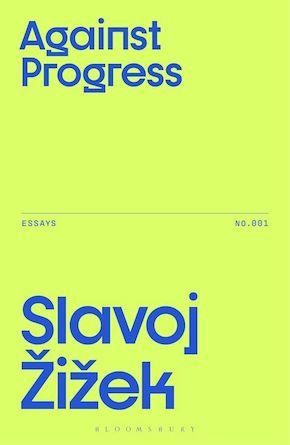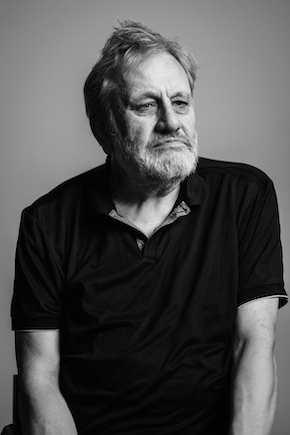Disavowal
by Slavoj Žižek
Today, we are exposed to an entire series of traumatic and disturbing events: the catastrophic effects of climate change, wars, migrations, the disintegration of the social fabric that unites a society, the growing gap between the rich and the poor which threatens to trigger social upheaval… Then there is the rise of the new far Right, manifested most recently in the string of victories for neo-fascist populist parties in western Europe: Italy, Netherlands, France… So how should we (by ‘we’ I mean those who perceive these victories as a serious threat) react to this situation? The common-sense answer – keep a cool head, carefully analyse the situation and see what can realistically be done – is obviously too flat: everybody would in principle agree with it, which makes it toothless. A much better approach is to see what options are at our disposal. As far as I can see, there are three.
First: Outright denial. ‘It’s all overblown, let’s just carry on with our lives as usual.’ This strategy is mostly used by the new Right and its conspiracy theories (climate change denialism, vaccinations as the cause of autism, etc.), although recently Leftist versions have also begun to emerge (variations on the theme that the ecological panic, Covid pandemic, and the war in Ukraine are all inventions by big capital to keep workers under control).
Second: A fascination with the apocalyptic threat that accepts it as inevitable and something, perversely, which we are to enjoy. This stance is, of course, rarely formulated in an explicit way, but it often pervades our thinking as its obscure foundation.
Third, and most interesting: Disavowal. As Alenka Zupančič demonstrated, disavowal best renders the structure underlying our contemporary social response to traumatic and disturbing events, from climate change to unsettling tectonic shifts in our social tissue.
Unlike denialism and negation, disavowal functions by fully acknowledging what we disavow – its logic is that of the well-known French phrase je sais bien, mais quand même…, ‘I know very well (that it’s true), but all the same… (I don’t really believe in it).’ Such a stance is fast becoming the predominant mode in which we live our social and political lives. We see it lived out among the vast swathes of people who fully accept climate change and impending environmental collapse as scientific realities, but nevertheless continue to reproduce, drive cars, eat meat, rely on technologies and so on, just as if the planet’s resources are limitless rather than exhausted: ‘I know very well we are in serious trouble with our environment, but nonetheless… (life must go on, our individual desires are still worth pursuing, fundamentally it’s business as usual).’ Politically, we see it in the tepid response to the victories of neo-fascist parties and actors across western Europe: ‘Yes, the rise of Rightist populism is a serious threat to our democracy, but nonetheless… (look at Italy, the Meloni government functions quite well in the EU context; even in Netherlands Geert Wilders’ victory resulted in a respected technocratic government; and we can be sure that Rassemblement National in government will have to tone down its excesses, everyday things will continue as they always have, life must go on…).’ Continuity, business as usual, an assumption that there’s no meaningful alternative to continuing to behave as if tomorrow will not be materially different from today and that our way of life can endure indefinitely: these are the mechanisms of disavowal.
However, when the country went to the polls for the second round of the French elections on Sunday 7 July 2024, something totally different happened. Conventional wisdom was found wanting. Business was not conducted as usual.
The formula that best describes the success of the united bloc against neo-fascism is as follows: ‘Of course we know very well that Marine le Pen’s triumph is almost certain, the only open question is if she will get an absolute majority in the parliament, opinion polls are very clear, but nevertheless… (miracles happen, we may even win, we just have to work as fast and as hard as if there is still a realistic possibility of victory).’ And this is what happened: not only did le Pen not get the absolute majority, her RN even finished third well behind the Leftist bloc and Macron.
We know (or feel with the force of seeming knowledge) that we cannot avert environmental collapse, but we should still take the actions that would give us the best chance of doing so.”
Why did this apparently irrational strategy work? Because the knowledge contained in ‘Of course we know very well’ is not neutral: its objectivity is already biased. What we ‘know very well’, what is ‘obvious’, what is accepted as a matter of course, is not written in stone, but in shifting sand; it is a socially-constructed shared hegemonic opinion which obfuscates its owns cracks and inconsistencies in order to seem immutable, and our task is to change it. The point is not to provide ‘alternative facts’, but to undermine the framing that makes us select some facts and ignore others. This is why we are not dealing here with the usual disavowal but with a courageous act of taking a risk and ignoring our apparent limitations. Our stance should be: we know we appear weak and divided, but we should nevertheless do what has to be done. We know (or feel with the force of seeming knowledge) that we cannot avert environmental collapse, but we should still take the actions that would give us the best chance of doing so. In such a situation, where apocalypse is on the horizon, one should bear in mind that the standard logic of probability no longer applies – we need a different logic, that described by Jean-Pierre Dupuy:
The catastrophic event is inscribed into the future as a destiny, for sure, but also as a contingent accident… [I]f an outstanding event takes place, a catastrophe, for example, it could not not have taken place; nonetheless, insofar as it did not take place, it is not inevitable. It is thus the event’s actualization – the fact that it takes place – which retroactively creates its necessity.
Dupuy provides the example of the French presidential elections in May 1995; here is the January forecast from the main polling institute: ‘If, on next May 8, Ms Balladur will be elected, one can say that the presidential election was decided before it even took place.’ Applied to the situation in France, this means: ‘If there is economic chaos and social unrest, this will be necessary and inevitable; however, we could change the frame itself within which our fate seems predetermined.’ This, according to Dupuy, is also how we should approach the prospect of an ecological or social catastrophe: not ‘realistically’ appraising the likelihood of the catastrophe, but accepting it as our fate, as unavoidable, and then, on the basis of this acceptance, mobilize ourselves to perform the act which will change destiny itself and thereby open up new possibilities within the situation. Instead of saying ‘The future is still fluid, we still have time, time to act and prevent the worst’, one should accept the catastrophe as inevitable – and then act to undo the destiny which is already ‘written in the stars’.
The problem is, of course, what to do now that disavowal, in this particular case, worked? The predominant tone of the discourse responding to the defeat of le Pen is best rendered by a CNN headline: ‘Macron’s gamble has kept the far right out of power, but plunged France into chaos.’ The new conventional wisdom is that Emmanuel Macron and Jean-Luc Mélenchon (the key figure in the Left alliance) are so far apart politically that there seems to be no possibility of a compromise on which a viable coalition could be based. So, there will be prolonged instability which will for certain unsettle the economy and probably create the perfect conditions for a landslide Rassemblement National victory in the next elections. Ominous signs are already emerging but these signs are ambiguous – their meaning comes from the imagined/predestined catastrophe, and it is in our power to rewrite the past that leads to this future.
from Against Progress (Bloomsbury, £9.99)
—

Slavoj Žižek is a Hegelian philosopher, a Lacanian psychoanalyst, and a Communist. He is International Director at the Birkbeck Institute for Humanities, University of London, Visiting Professor at the New York University, and Senior Researcher at the Department of Philosophy, University of Ljubljana in his native Slovenia. Against Progress, the first of the new Žižek’s Essays series, is published by Bloomsbury in paperback and eBook.
Read more
@Slavojiek
@BloomsburyAcad
@BloomsburyBooks
Author photo by Jérome Fâvre Studio

